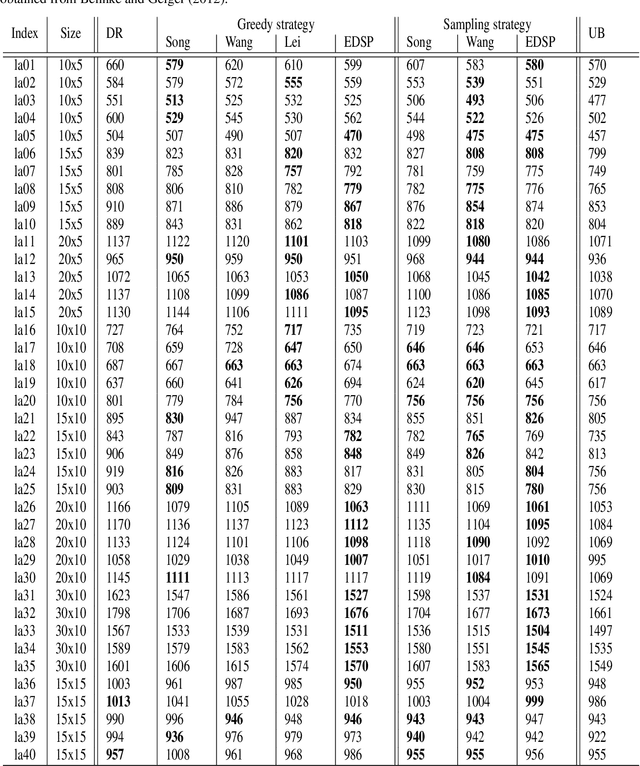Solving large flexible job shop scheduling instances by generating a diverse set of scheduling policies with deep reinforcement learning
Paper and Code
Oct 24, 2023



The Flexible Job Shop Scheduling Problem (FJSSP) has been extensively studied in the literature, and multiple approaches have been proposed within the heuristic, exact, and metaheuristic methods. However, the industry's demand to be able to respond in real-time to disruptive events has generated the necessity to be able to generate new schedules within a few seconds. Among these methods, under this constraint, only dispatching rules (DRs) are capable of generating schedules, even though their quality can be improved. To improve the results, recent methods have been proposed for modeling the FJSSP as a Markov Decision Process (MDP) and employing reinforcement learning to create a policy that generates an optimal solution assigning operations to machines. Nonetheless, there is still room for improvement, particularly in the larger FJSSP instances which are common in real-world scenarios. Therefore, the objective of this paper is to propose a method capable of robustly solving large instances of the FJSSP. To achieve this, we propose a novel way of modeling the FJSSP as an MDP using graph neural networks. We also present two methods to make inference more robust: generating a diverse set of scheduling policies that can be parallelized and limiting them using DRs. We have tested our approach on synthetically generated instances and various public benchmarks and found that our approach outperforms dispatching rules and achieves better results than three other recent deep reinforcement learning methods on larger FJSSP instances.
 Add to Chrome
Add to Chrome Add to Firefox
Add to Firefox Add to Edge
Add to Edge